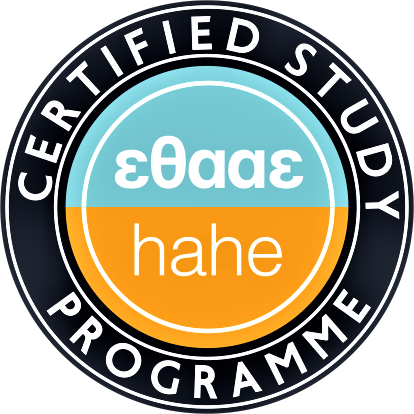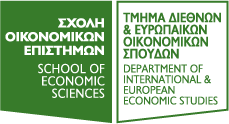Topics in International Economics
Number of credits allocated: 6 ECTS Credits
Objective of the course (expected learning outcomes and competences to be acquired)
After successful completion of the course, students will be able to:
- distinguish the main differences between alternative theoretical models and explain their mode of operation in deriving the theoretical conclusions,
- analyze methodically international economic phenomena, such as e.g. the consequences for national product, employment, and the balance of payments of national macroeconomic policies, as well as the functioning of different exchange rate systems and their consequences for the orderly adjustment of economies in times of economic crises,
- evaluate international economic developments in a systematic and objective manner, developing and applying appropriate criteria, based on the predictions of various theories as well as international experience, as presented in the course.
Prerequisites: There are no formal prerequisites, but it is recommended that students have a sound knowledge of microeconomics, macroeconomics, econometrics and international economics.
Course contents
1. THE POLITICAL ECONOMY OF TRADE POLICY
The position in favor of free trade
The national welfare arguments against free trade
Income distribution and trade policy
International negotiations and trade policy
2. OBJECTIONS TO TRADE POLICY
Contemporary arguments for interventionist policy in international trade
Globalization and low-wage work
Globalization and environment
3. INTERNATIONAL MONETARY SYSTEMS: A HISTORICAL REVIEW
Macroeconomic policy objectives in an open economy
Sorting out monetary systems: The monetary trilemma of open economies
International Macroeconomic Policy in the Gold Standard System, 1870-1914 602
The interwar era, 1918-1939
The Bretton Woods System and the International Monetary Fund: An Analysis of Policy Options for Achieving Internal and External Equilibrium
The US external balance problem in the Bretton Woods system
The arguments in favor of floating exchange rates
Macroeconomic interdependence in floating exchange rates
What have we learned from the developments after 1973?
Can fixed exchange rates be an option for most countries?
4. DEVELOPING COUNTRIES: ECONOMIC GROWTH, CRISIS AND REFORM
Income, wealth and the growth of the international economy
The Balassa-Samuelson model
Structural characteristics of developing countries
Borrowing and debt of developing countries
East Asia: Success and Crisis
Lessons from developing country crises
The reform of the architecture of the international financial system
Understanding Global Capital Flows and Global Income Distribution: Is Geography Destiny?
5. STABLE EXCHANGE RATES AND INTERVENTION IN THE FOREIGN EXCHANGE MARKET
Why we study fixed exchange rates
The interventions of the central bank and the money supply
How the central bank sets the exchange rate
Stabilization policies with a fixed exchange rate
Balance of payments crises and capital flight
Controlled variation and passive interference
Reserve currencies in the international monetary system
The golden rule
6. FINANCIAL INTEGRATION: OPPORTUNITIES AND CRISIS
The international capital market and the profits from international trade
International banking and international capital market
Banking activity and financial volatility
Challenges for international banking regulation
How well have international capital markets allocated capital and risk?
Recommended reading
- Suggested bibliography: Krugman, P., Obstfeld, M. and M. Melitz (2023). International Economics, 5η edition, Kritiki (in greek).
- Related academic journals (indicative list): American Economic Review, Journal of International Economics, Journal of International Money and Finance, World Development.
Teaching methods: Lectures and essay presentations
Assessment methods: Written assignment, in Greek (30%), Final assessment: In-class written examination (two-hour, closed book, essays/problems, comprehensive) in greek (70%)
Language of instruction: Greek, English





